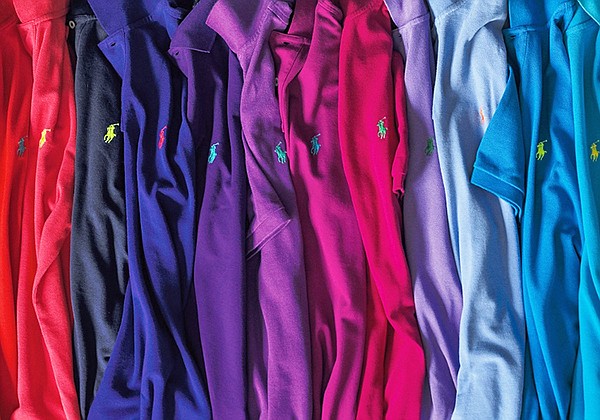Ralph Lauren and Dow have partnered to release a detailed manual that covers dyeing cotton more sustainably and effectively by using ECOFAST Pure Sustainable Textile Treatment. | Photo courtesy of Ralph Lauren
TECHNOLOGY
Ralph Lauren and Dow Collaborate on New Process to Dye Cotton More Sustainably
Ralph Lauren and Dow are open-sourcing a new platform that aims to transform how the apparel industry dyes cotton.
The two companies released a detailed manual regarding how to dye cotton more sustainably and effectively by using ECOFAST Pure Sustainable Textile Treatment. The manual details how to use ECOFAST Pure, a cationic cotton treatment developed by Dow with existing dyeing equipment.
“As fashion supply chains look to recover from impacts of the pandemic, there is a critical window to build more-sustainable practices into production processes,” said Mary Draves, chief sustainability officer at Dow. “By collaborating today to scale a less resource-intensive dyeing process, we can help address pressing challenge like climate change and water resiliency in the long term.”
Conventional fabric dyeing uses more than a trillion gallons of water each year, according to the companies. Dow says the new platform uses 90 percent less chemicals, 50 percent less dye, 50 percent less water and 40 percent less energy. Ralph Lauren is the first brand to use ECOFAST Pure and will use the technology in its cotton-dyeing process as part of its new Color on Demand platform. The Color on Demand platform is a system that enables the recycling and reuse of all water from the dyeing process.
Ralph Lauren used ECOFAST Pure as part of its Team USA collections for the 2020 Olympic and Paralympic Games. By 2025, the brand aims to use Color on Demand to dye more than 80 percent of its solid cotton products. The company has previously referred to climate change as one of the most challenging issues at present and pledged to reach zero greenhouse-gas emissions by 2040.






















